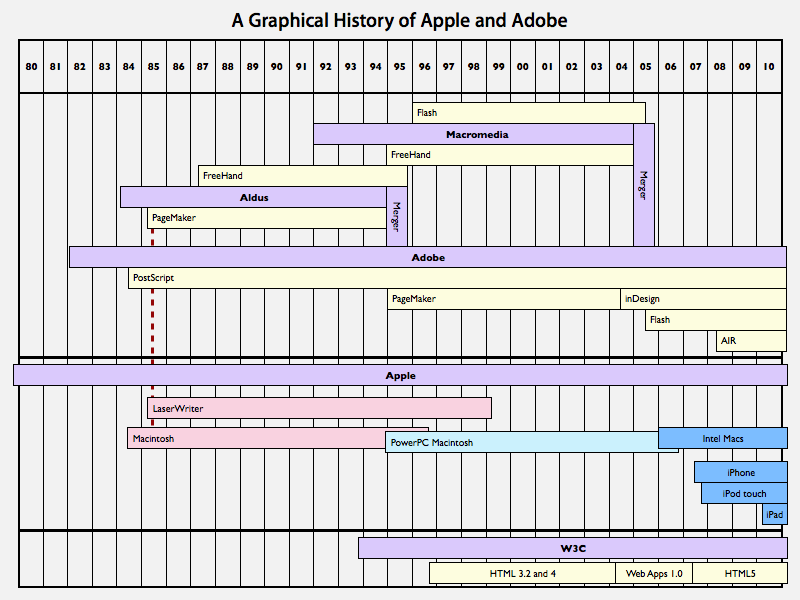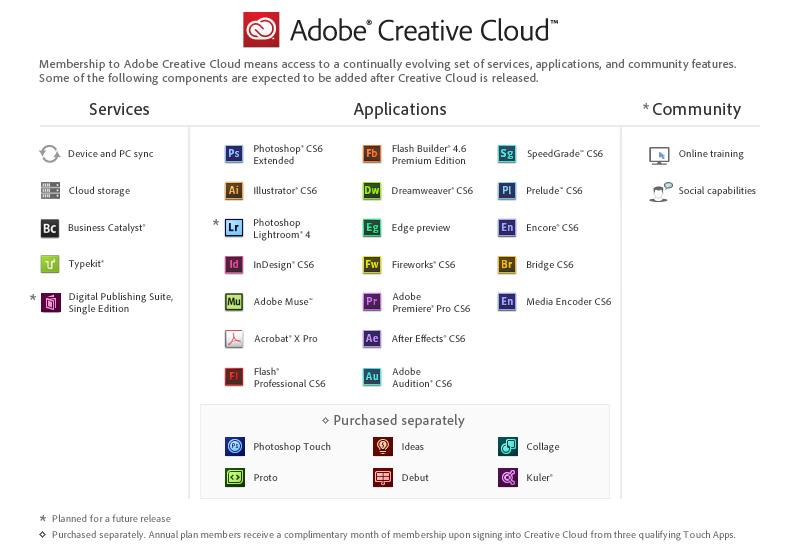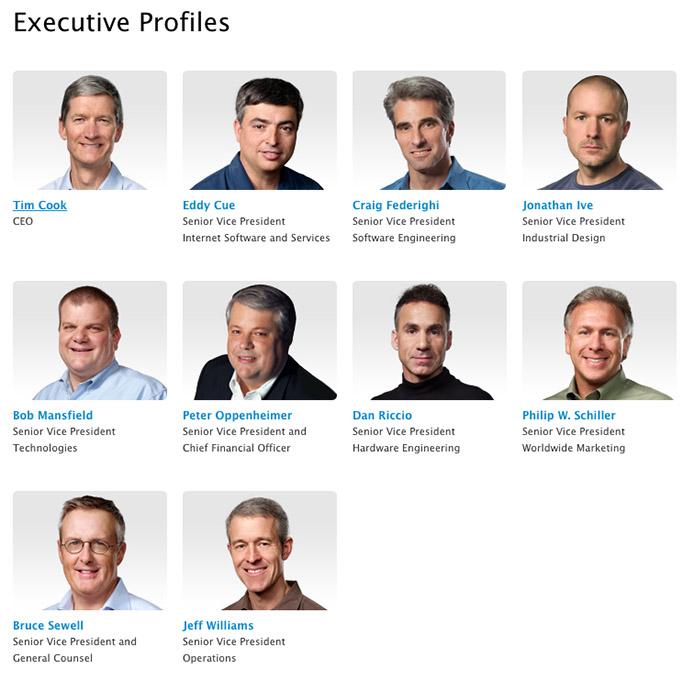Just hours after word leaked that Apple had poached Adobe's chief technology officer, the Internet is ablaze with the question of what, exactly, the iPhone maker plans to do with Kevin Lynch.
No Flash in the pan
Lynch is particularly interesting as an executive choice for Apple because of his close association with Adobe Flash, a product he infamously clashed with Apple over, beginning in 2010.
Tensions between the two companies grew, particularly after the iPad appeared without any support for it, followed by a devastating essay written by Steve Jobs that attacked Flash from multiple angles, including its performance, impact on battery life, its faulty security record, its degree of openness as a technology, and even its core value to the web, given the large library of iOS apps and superior alternatives to delivering video and animations on the web that existed by then.
Lynch staunchly defended Flash, accusing Apple of promoting a philosophy "counter" to the web and one that would require developers to target multiple platforms, rather than writing to a common 'run anywhere' platform like Flash.
He touted the partnerships Adobe had lined up, stating at the time that "all the innovation coming from all those companies will dwarf what's coming from the one company that isn't participating."
Instead, Apple's iOS juggernaut did the dwarfing, obliterating the market for Flash so rapidly that even Adobe's close ally Google abandoned support for the middleware on Android just two years after promoting Flash Player as a major differentiating feature of its new devices.
Is Lynch a bozo for supporting Flash?
Apple's ability, less than three years later, to woo Lynch away from Adobe speaks volumes about the resiliency of both parties. It's not yet obvious what Lynch will be doing at Apple however. As columnist John Gruber recently tweeted to former Apple executive Jean-Louis Gassée, "What’s your theory? I’m at a loss, honestly. Makes no sense to me."
Gruber has subsequently written a piece referring to Apple's new VP of Technology as "a Bozo, a Bad Hire," citing Lynch's comments in support of Flash while working for Adobe and tasked with marketing Flash.
However, Flash isn't the only project Lynch has worked on. He has roots in developing software titles for the Macintosh back to his college years, and his bio (still hosted by Adobe) cites early work in the mid 90s developing user interface elements at General Magic, a portable computing company Apple spun off in 1990 to focus its efforts on the Newton Message Pad.
Lynch also "designed the user interface and developed the first Macintosh release" of Frame's FrameMaker publication layout software (later acquired by Adobe) as well as Macromedia's Dreamweaver, one of the original graphical desktop web development tools (which was also acquired by Adobe). At Macromedia, Lynch served as "chief software architect and president of product development."
How Flash threatened, and indirectly helped save, Apple
Additionally, Lynch isn't the only Apple executive to have promoted Flash in a former life. Apple's current senior vice president of worldwide marketing Phil Schiller was formerly Macromedia's VP of Product Marketing, back when the company bought Flash from its original developer FutureWave in 1996.
The next year, Schiller left Macromedia to join Steve Jobs at Apple. But back at Macromedia, a series of products were vying for the company's attention, ranging from print tools that directly completed with Adobe, to a fledgling new video editor named KeyGrip developed by Adobe's former Premier creator Randy Ubillos, to new web-centric tools like Flash and Dreamweaver.
Macromedia caught a big break when Microsoft agreed to distribute Flash with Internet Explorer 5. That gave Flash a rapidly installed base even as Microsoft worked diligently to thwart the progress of Sun's Java and Netscape's web browser as competing threats to Windows, and as Microsoft worked to derail Apple's QuickTime as the medium for distributing web videos.
Aided by Microsoft, Macromedia's Flash rapidly took over as the web's preferred method for distributing video, animations and interactivity. Because Flash was closed and proprietary to Macromedia, no open community could foster any real threat to Windows via web apps, at least not for nearly another decade.
The growing popularity of Flash led Macromedia to focus on web development tools, inducing it to nearly abandon KeyGrip. Apple, noting the importance of salvaging one of the last major products to be build around QuickTime, stepped in and acquired the project, eventually selling it under the name Final Cut Pro.
The success of Final Cut Pro in helping to sell PowerMacs to a new audience threw Apple an important lifeline. Additionally, in hiring Ubillos, Apple again became a significant software applications developer, churning out titles like iMovie and making new acquisitions that led to the development of Logic Pro, GarageBand and a series of other Pro Apps and iLife and iWork titles.
By 2005, Adobe decided to stop competing against Macromedia and instead simply acquired it, citing Flash as central to the $3.4 billion purchase. It's no surprise why Adobe began staunchly defending its key asset once Apple released its first iPhone two years later without Flash support, and as it subsequently watched iOS grow in stature at the expense of Flash among mobile devices.
Lynch after Flash at Adobe
As all prospects for Flash on mobile devices imploded last year, Lynch's role at Adobe focused on managing the company's Research and Experience Design teams, which have increasingly focused on HTML5 and using Adobe's Flash tools to generate code for native apps on various platforms, including Apple's iOS.
A report by Bloomberg says Lynch "led Adobe’s push to focus more on subscription-based services and wireless devices, introducing Creative Cloud software, which lets designers use mobile applications for creating printed pages and websites from an iPad or other tablets," noting that Adobe reported signing up more than 500,000 Creative Cloud subscribers.
Apple is certainly interested in expanding its expertise in providing software services, particularly as it builds out data centers tasked with hosting iCloud, App Store and iTunes related services.
Lynch was also credited by Adobe as being "responsible for the company's ubiquitous Portable Document Format (PDF)" as well as managing the "alignment of Adobe's servers and tools with the company's technology platform." Additionally, it said he "oversees Adobe's developer relations program, including the integration of customers and partners in the development process through Adobe Labs and customer advisory councils."
Lots of potential jobs for Lynch at Apple
With the sidelining of Scott Forstall, the lead architect of iOS, Apple certainly has needs for experts in the areas of managing its technology platform and in developer relations. Apple also has a series of Pro Apps and other desktop and mobile software titles that appear starved for "software architects" and product development managers.
Apple's existing executive committee is also currently spread quite thin in a number of other respects, with Eddy Cue tasked with managing the entirely of Apple's online services ranging from iTunes to iCloud to App Stores; Craig Federighi tasked with managing both OS X and iOS; and Jon Ive now handling both the overall design of hardware and software.
Rather than assigning Lynch a specific role that takes over some portion now assigned to one of these executives, Apple has him reporting to Bob Mansfield, who currently leads the new "Technology" group Apple created last fall.
That new group combined the company's wireless teams and included its semiconductor efforts, which has been rapidly growing in stature as Apple has made a series of acquisitions over the last five years, from PA Semi to Intrinsity to AuthenTec and Anobit.
Apple may be interested in seeing where its actual needs are, having just rejiggered its executive team last fall. Over the last several years, the company has experienced some high profile executive churn, having hired IBM's Mark Papermaster to lead its iPod and iPhone division and Dixon's John Browett to run its retail operations.
Both hires turned out to be disastrous, largely due to their incompatibilities with Apple's culture. While Lynch already has a well documented, historical difference with Apple in regard to Flash, his history in developing Macintosh applications and working near Apple in the same Silicon Valley environment are likely to make him a better fit at Apple compared to the very different backgrounds of Papermaster and Browett.
 Daniel Eran Dilger
Daniel Eran Dilger

















 Christine McKee
Christine McKee
 Charles Martin
Charles Martin

 Oliver Haslam
Oliver Haslam
 William Gallagher
William Gallagher

 Sponsored Content
Sponsored Content









202 Comments
The whole question is silly. He will be working under Bob Mansfield and Bob Mansfield has already retired once and hen came back when his replacement wasn't the right guy. Whether it's a smart move or a dumb move, it seems pretty clear to me that this guy is Bob's new (possible) replacement or at least second in command.
The whole question is silly. He will be working under Bob Mansfield and Bob Mansfield has already retired once and hen came back when his replacement wasn't the right guy. Whether it's a smart move or a dumb move, it seems pretty clear to me that this guy is Bob's new (possible) replacement or at least second in command.
Considering that he was aspiring to be CEO of Adobe, I highly doubt he took the position to remain 2nd in command. I personally think he'll be Bob's new replacement.
The implication is that Apple will put Flash in iOS. Doubt it. My guess is that he'll do something like work on the internal systems like POS, online self service etc
The implication is that Apple will put Flash in iOS. Doubt it.
I agree. I don't think we'll see anything resembling an implementation of flash for iOS. I thought of assigning it a hypothetical title, but it was too silly.
absurd hire. His past experience in 90's is meaningless as it was an entirely different era. its his judgement in guiding Adobe down the wrong path this century is what matters. He wasn't simply marketing Flash (and his Marketing chops are horrific from the video Gruber linked to) , he was the CTO. His job was to give Adobe his best guidance about future technologies and he FAILED miserably. I am seriously questioning Cook's ability to access talent. Jobs could look right thru a guy and sum them up in a second. Cook apparently believes the resume BS and unable to judge what is important